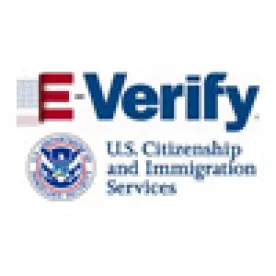On Dec. 3, 2018 United States Citizenship and Immigration Services (USCIS) published a proposed rule that would change the process for submitting petitions under the H-1B cap that opens every April.
The proposed rule would have two primary implications:
-
Establishing an electronic registration program for H-1B petitions filed under the H-1B cap
-
Altering how cases are currently handled under the regular cap (65,000 slots) and the U.S. Master’s degree exemption (20,000 slots)
Electronic registration program requirements
The proposed rule would:
-
Require petitioners (employers) to electronically register with USCIS during a designated registration period – the designated registration period would be at least 14 calendar days long. USCIS would give at least 30 days advance notice before the opening of the registration period.
-
Require petitioners to provide basic information during the registration process including:
-
Employer name, EIN and mailing address
-
Employer’s authorized representative’s name, job title and contact information (phone number and email)
-
Beneficiary’s full name, date of birth, country of birth, country of citizenship, gender and passport number
-
Whether the beneficiary has obtained a Master’s Degree or higher from a U.S. college or university
-
The employer’s attorney
-
Any other basic information requested by USCIS
-
-
Require the employer to attest that the registration is true and accurate and that the employer intends to employ the beneficiary consistent with the registration.
-
Not allow petitioners to edit their registration once submitted and not allow substitution of beneficiaries.
-
Have USCIS notify petitioners if their registration was selected for filing of an H-1B petition under the cap.
Typically, enough registrations would be submitted to require the running of a lottery. Once the lottery was completed, petitioners would be notified if their case was selected. The notification would include a filing location and designated filing period and provide instructions on how to file. -
Allow petitioners to have at least 60 days to properly file the H-1B petition once notified of the selection.
USCIS is planning on staggering filings to allow for easier receipt and handling of petitions once they are filed. For instance, a petitioner could be notified on March 22 that its petition was selected and the filing window could begin on April 1 and end on May 31. Other petitions selected could have a filing window of May 1 to June 30. -
Allow for USCIS to suspend the registration process in a given year if the system is not ready (for the upcoming April 2019 filing season) or is not functioning properly.
Changes to advance degree allocation
The proposed rule would change the order in which registrations are counted towards the projected number needed to reach the regular cap (65,000) and the advanced degree cap (20,000).
Currently, USCIS fills the advanced degree cap first, and then puts all remaining petitions into the regular cap selection process. Under the proposed rule, USCIS would include all registrations, including individuals with advanced degrees from U.S. colleges or universities, into the regular cap selection process until that cap is reached.
Once that cap is reached, all remaining petitions that qualify for the advanced degree cap would be put through the selection process for that cap. USCIS believes this change will allow for more individuals who meet the advanced degree exception to be chosen.
When will changes be finalized?
It is not clear when the final regulation will be published, what the final form will be or when it will take effect. The comment period ends on January 2.
It is possible the regulation could take effect and be implemented before the H-1B Cap opens in April 2019. However, a lot will have to happen quickly for that to occur.
We will continue to monitor these changes and will update you on any important developments.



 />i
/>i

